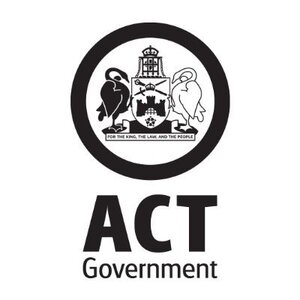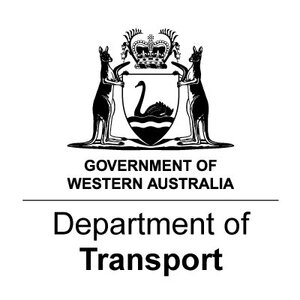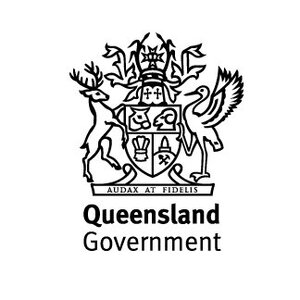I don't know where these post belong. If Mods believe it belongs into Forum then they can remove it.
I found an article that has very good information regarding EV Incentives in Federal, States and Territory.
These post is for people that thinking of purchasing an EV vehicle and inform them about the various available incentives by Federal, States and Territory.
Federal https://www.aph.gov.au/Parliamentary_Business/Bills_Legislat…
Incentives
The Labor Government launched its first ever electric vehicle strategy in September 2022, and in November 2022, the Treasury Laws Amendment (Electric Car Discount) Bill passed through the Federal Parliament, which will provide up to $2000 off the purchase price of battery-electric and plug-in hybrid vehicles (PHEV), as well as Fringe Benefits Tax (FBT) exemptions for fleets and novated leases.
The Government will apply the exemption retrospectively to eligible cars first used on or after July 1, 2022.
PHEVs will initially be covered, but the offer will expire on April 1, 2025.
Tax
The Luxury Car Tax threshold for low-emission vehicles has been raised to $84,916, from the standard vehicle starting rate of $71,849.
Alongside the removal of the Fringe Benefits Tax the five per cent import tariff for EVs priced under the LCT limit has been cut.
The FBT savings amount to $9000 per annum for an employer, or $4700 for an individual with a salary sacrifice agreement for a $50k electric vehicle.
Cutting import tariffs drops purchase prices by a further $2500, according to the documents.NEW SOUTH WALES official gov. website
Incentives
$3000 rebate for the first 25,000 EVs or FCEVs sold which are priced under $68,750 – but read the fine print, the offer is on the RRP plus the delivery charge and optional extras
Stamp duty waived on both types of vehicle under $78,000 – all from September 1, 2021
EV drivers can also use T2 and T3 transit lanes across NSW
Registration fee discounts.
Tax
2.5c/km BEV, 2c/km PHEV – but only as of July 1, 2027
VICTORIAofficial gov. websiteIncentives
$3000 subsidy given for the first 20,000 EVs or FCEVs sold which are priced under $68,740,** as with NSW the **offer is on the RRP plus the delivery charge and optional extras
Reduced stamp duty rates
$100 discount on registration annually.
Tax
2.6c/km BEV, 2.1c/km PHEV from July 1, 2022
Update: as of June 30th 2023, The Victorian government has ended this scheme.
QUEENSLAND official gov. website
Incentives
$3000 rebate for new BEVs up to $58,000 on 15,000 cars as of March 16, 2022, like the other states the **offer is on the RRP plus the delivery charge and optional extras
Lowest car registration for BEVs – $263 a year
Lower stamp duty rates than ICE cars.
Tax
No plans at this time.AUSTRALIAN CAPITAL TERRITORY official gov. website
Incentives
Two years’ free registration for BEVs and FCEVs as of May 24, 2021 until June 30, 2024
Older EVs eligible for 20 per cent off rego fees
Stamp duty may also be waived on vehicles purchased for the first time
ACT drivers are also able to access up to $15,000 in interest-free loans to help cover the upfront purchase cost of an electric vehicle up to a cap of $77,565.
Tax
None yet – Distance and/or congestion based charging for all vehicle types “may be considered in the medium term”.NORTHERN TERRITORY official gov. website
Incentive
BEVs and PHEVs to get cheaper rego and stamp duty from July 2022, the latter slashed by $1500
Discounts to last five years
Grants for home, workplace and public EV chargers, and opportunities offered to develop local skills to service technology and install infrastructure.
Tax
None – No current proposal, could possibly be in the long term.TASMANIA official gov. website
Incentives
Two years’ free stamp duty for new and second-hand EVs as of July 1, 2021
Two years’ free rego on EVs purchased by car rental companies and coach operators.
Tax
Not plans at this time, but will monitor based on what’s happening in other states.SOUTH AUSTRALIA official gov. website
Incentives
7000 subsidies worth $3000 taken off purchase price at point of sale, for a limited (unspecified) time only up to value of $68,750 **– this one is tricky, SA says the **offer "may or may not" include the delivery charge and optional extras depending on whether it is used to calculate stamp duty
Three years' free registration for vehicles first registered from October 28, 2021 up to June 30, 2025
Up to $2000 to install EV smart chargers at home, but limited to 7500 households.
Tax
EV tax initially pushed back from July 1, 2022 to July 1, 2027 or 30 per cent uptake (whichever comes first) – same as NSW – but was repealed by the State's Parliament in February 2023 due to public backlash
Would have meant a 2c/km charge for plug-in hybrid vehicles, and 2.5c/km for any other electric vehicles
Calculated and billed in arrears as part of the vehicle registration process and based on the distance travelled since the last renewal.WESTERN AUSTRALIA official gov. website
Incentives
EVs exempt from 10 per cent on-demand transport levy
Largest incentive offer in Australia – $3500 rebate for the first 10,000 Western Australians to buy an EV or FCEV from May 10, applying to vehicles under $70,000 before on-road costs, note the offer is on the RRP plus the delivery charge and optional extras.
Tax
EV tax to start from July 1, 2027
2c/km km for plug-in hybrid vehicles, and 2.5c/km for any other electric vehicles.











EVs (eg Tesla) are so overpriced in Australia especially compared that of in China.
Tesla Y performance $95,000 in Australia vs $77,000 in China.